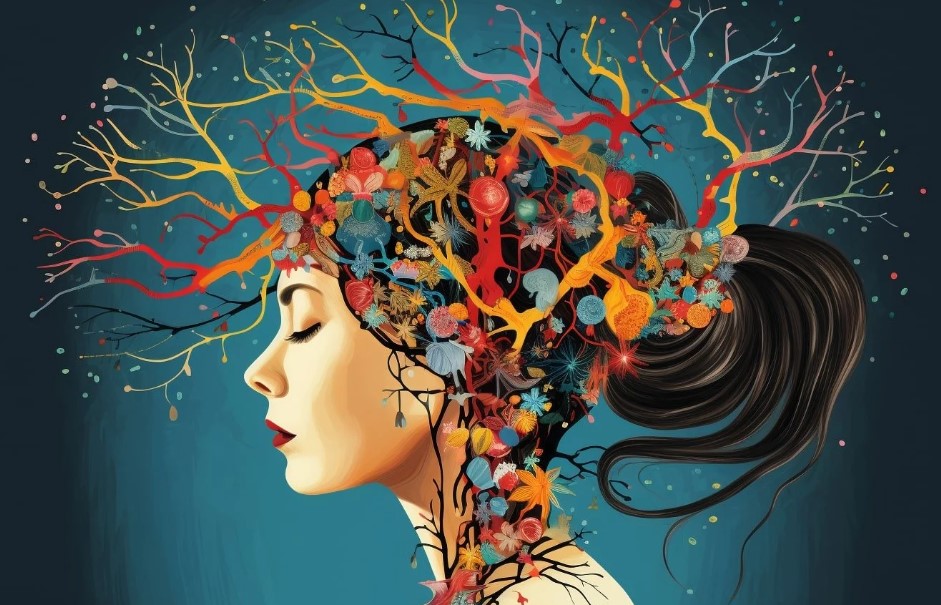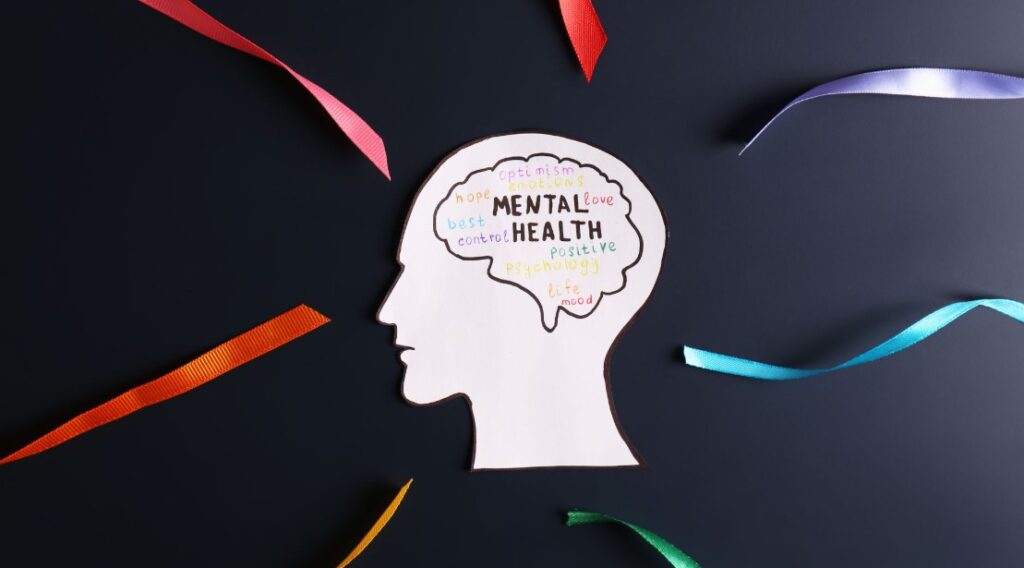
Mental Health Awareness and Active Lifestyle: Essential Steps to Boost Your Well-Being
The speed of modern life makes mental health the leading determinant of personal well-being. People need to make mental well-being their primary focus because stress levels anxiety rates and mental health challenges continue to rise. Mental health determines our thinking abilities and emotional experiences and influences our daily functions professional output and daily life quality. This article examines mental balance awareness together with active lifestyle effects on mental well-being and it presents practical ways to enhance your mental balance state.
What is Mental Health?
The state of mental health includes emotional as well as psychological and social aspects that determine how people manage stress develop interpersonal relationships and make choices. At all ages from childhood through adulthood, mental health stands as an essential factor. Mental wellness in good condition enables people to build happy and healthy lives but subpar mental health results in multiple emotional and physical difficulties.
Why is Mental Health Important?
Mental health requires the utmost importance. Mental health affects every aspect of life including relationships alongside career success physical well-being and personal fulfillment. The World Health Organization (WHO) reports that mental or neurological disorders will affect one in every four people during their lifetime. Mental balance problems persist when people fail to grasp their nature which fuels continuous deterioration of their wellness.
Some reasons why mental health is so crucial include:
- Better decision-making: The state of our mental balance determines our ability to make choices. People who maintain good mental balance show stronger ability to make sound judgments during stressful moments.
- Stronger relationships: Open communication and trust together with empathy emerge from healthy mental states to establish successful personal connections as well as professional alliances.
- Increased productivity: Success demands optimal mental well-being because it controls our ability to focus and maintain our drive alongside our available energy.
Our website features both a detailed mental health PDF and a useful mental health test which you can access to learn more about your emotional and mental wellness.
Mental Health Awareness: The Key to Unlocking Better Lives
The stigma that surrounds mental wellness creates one of the primary obstacles to effective mental health treatment. Our society requires mental health awareness to reduce stereotypes about these issues which helps people get the help they require. The public needs to learn about mental health significance alongside appropriate resource locations for support during times of need.
Through mental wellness awareness, people learn about possible conditions including anxiety depression stress-related disorders while learning to normalize their search for treatment and support. Our ability to address psychological health issues directly will eliminate the fear and shame that prevent people from talking about their mental health.
Mental Health Examples: Real-World Challenges and Solutions
To understand mental health awareness properly one needs to know how mental wellness challenges truly affect individuals in their daily lives. Here are a few examples of common mental wellness conditions and how they affect individuals:
- Depression: Those who have depression face ongoing sadness together with reduced energy levels and problems with concentration. Mental health challenges disrupt all areas of existence from job responsibilities to personal relationships.
- Solution: People dealing with depression receive specific management assistance through cognitive behavioral therapy (CBT) in combination with antidepressant drugs and regular exercise regimes.
- Anxiety: The signs of anxiety include constant anxiety alongside fear and persistent nervousness. Work-related stress and social situations tend to become too intense for people which triggers physical effects including heart racing and sleep problems.
- Solution: The combination of mindfulness approaches with meditation and exercise together with professional counseling provides highly effective methods to control anxiety.
- Bipolar Disorder: This mental condition causes people to experience very intense shifts between states of depression and mania.
- Solution: Patients use medication management in combination with psychotherapy to stabilize their mood swings.
Better prevention management and treatment practices result from knowing what leads to mental health problems including genetic risks traumatic experiences and environmental pressures. Checking in regularly with mental health tests alongside emotional trigger awareness leads to better mental health outcomes.
The Link Between Mental Wellness and an Active Lifestyle
Nature provides one of the strongest approaches to combating mental illness when people choose active lifestyles. Scientific studies demonstrate that physical exercise creates major mood improvement while simultaneously decreasing depression symptoms and anxiety symptoms and promoting brain wellness. Physical activity triggers endorphins which are natural chemicals your body produces to boost mood while creating feelings of well-being.
Here’s how an active lifestyle contributes to better mental health:
- Reduces Stress: Regular exercise manages stress by decreasing the stress hormone cortisol throughout your body. Wandering exercises together with cycling and yogic stretching sessions help your brain achieve a calmer state while decreasing anxiety levels.
- Boosts Confidence: People who achieve small fitness accomplishments develop better body image and self-esteem which creates a beneficial mental wellness effect.
- Improves Sleep: Exercise performed at regular intervals helps normalize your sleep cycle. Proper rest during the g nights enables sharp thinking balanced emotions and excellent health.
Real-World Example: For several years John, a 45-year-old professional battled anxiety together with depression. Switching his routine to include three weekly three 20-minute jogs brought forth marked symptom relief in his anxiety condition. Throughout his exercise journey, he noticed higher levels of energy alongside improved mental clarity.
The fitness and wellness guides offered by Healthline along with other organizations provide expert advice on adding physical exercise to your daily life. Your mental health will benefit from both short and big physical activities including climbing stairs or taking walks.

How to Improve Mental Wellness: Practical Tips
If you’re ready to take action and improve your mental wellness, consider incorporating the following steps into your daily routine:
- Prioritize Self-Care: The maintenance of a healthy mind depends absolutely on self-care practices. Activities such as reading combined with nature experiences and meditation practice work to bring equilibrium back into your life.
- Practice Mindfulness: To manage stress and increase focus along with better control you should take part in mindfulness exercises including deep breathing and progressive muscle relaxation.
- Exercise Regularly: Devote at least thirty-minute sessions of moderate exercise to your weekly routine for three to five days. Physical exercise including running swimming and yoga represent some of the most effective means to enhance your mental wellness.
- Maintain a Healthy Diet: The food you consume affects both your emotional state and mental processing abilities. Your brain health will improve when you eat foods rich in omega-3 fatty acids and lean proteins together with antioxidants.
- Get Enough Sleep: Sleep functions directly with mental health. You need at least 7-9 hours of good quality sleep each night to maintain both cognitive performance and emotional stability.
- Build a Support Network: Your mental health improves when you create a circle of positive supportive people who make you feel better. The emotional health of a person requires social contact.
Frequently Asked Questions (FAQ)
Q1: What signs indicate I require professional mental wellness treatment?
A1: When mental health issues disrupt your everyday tasks or create ongoing emotional distress such as sadness anxiety or hopelessness you need professional mental health care. The early start of treatment leads to major improvements in the management of mental health conditions.
Q2: Regular physical exercise shows promise as a treatment for depression and anxiety along with other mental health problems.
A2: Yes! Physical activity functions as a leading approach for decreasing symptoms of depression and anxiety. Physical exercise enhances endorphin production which produces enhanced mood effects and decreases stress.
Q3: What other mental health resources do I have access to?
A3: People searching for mental health support will find numerous resources available to them. Users can find mental health directories and self-help tools combined with professional articles on the sites Mental Health America (external link) and Psychology Today. You can find extra resources at HealthBoosterss.com.
Q4: What stands as the primary factors leading to mental wellness problems?
A4: Genetics together with environmental stress past trauma substance abuse and brain chemical imbalances create the most common mental health conditions. Personal and professional stresses from workplace needs and family disputes lead to the development of mental health problems.
Conclusion: Take Action for Your Mental Wellness Today
The essential nature of mental well-being as a condition for living fully becomes apparent through efforts toward better mental health perception, fitness progress, and expert assistance. Every day you should begin with small actions that combine exercise and mindfulness practice while connecting with professional support. Multiple strategies working together will produce significant results for your mental along physical health.
Additional articles, resources, and tools for mental wellness prioritization can be found at HealthBoosterss.com. Take control of your well-being, and remember: When you need support, it is perfectly acceptable to seek assistance—your mental wellness matters.
